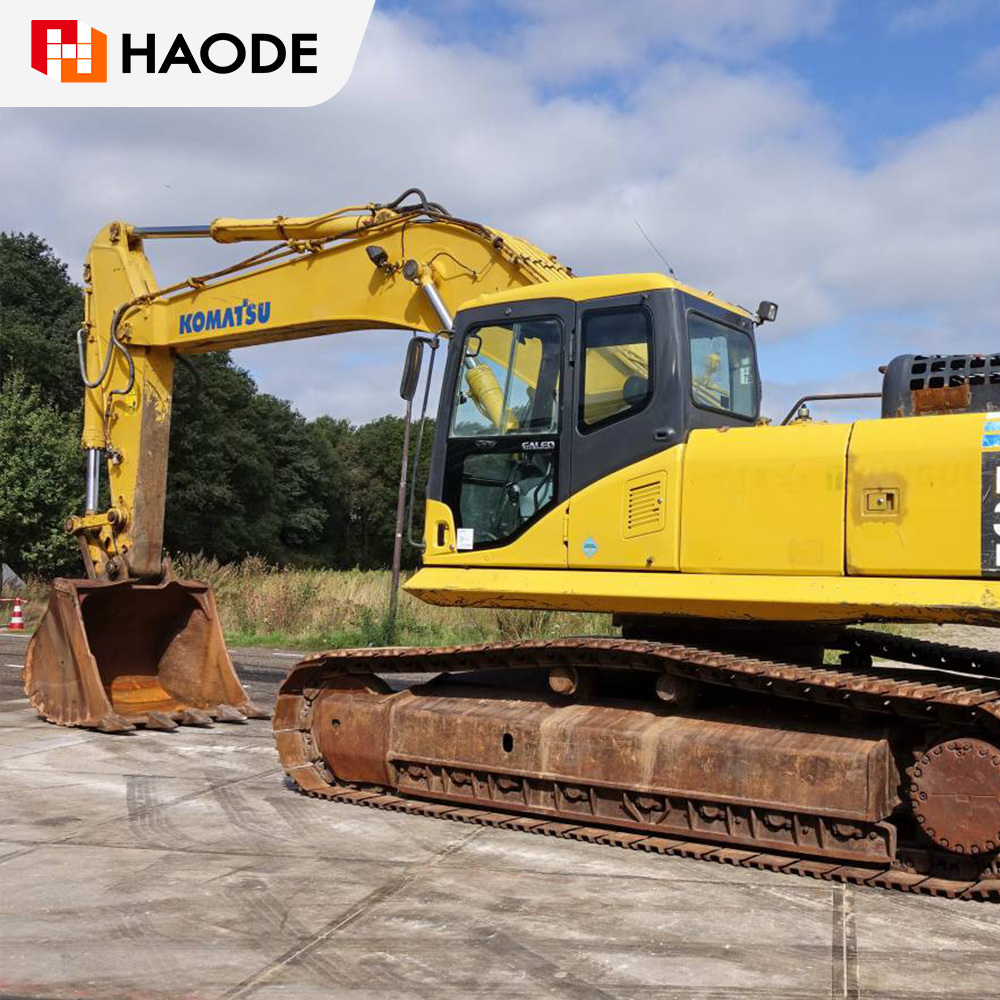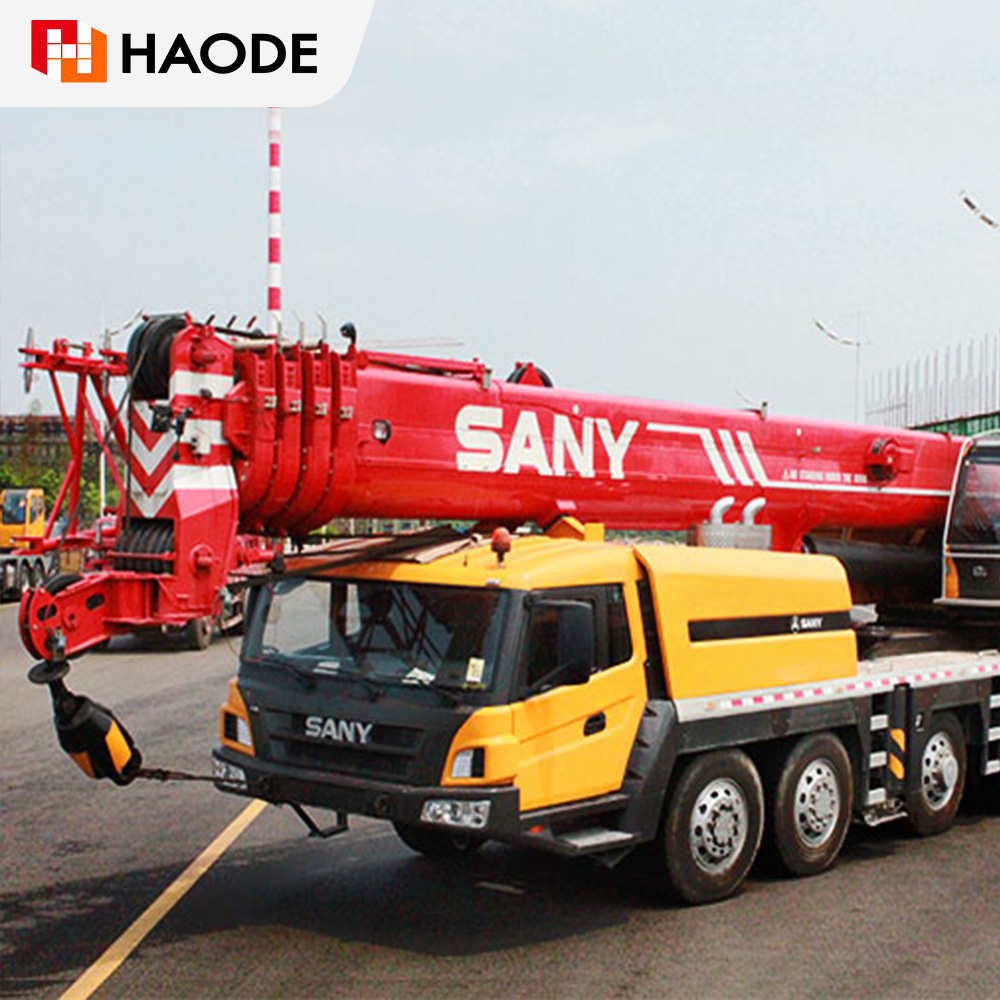23
2025
-
07
Top Questions Before Buying Used Construction Machinery
Category:
【Summary description】Purchasing second-hand construction machinery is a process that requires careful decision-making. Fully understanding the history of the equipment, carefully inspecting the performance, and confirming that the transaction is legal and compliant are the basis for ensuring investment returns and avoiding subsequent hidden dangers.
Buying used construction machinery, such as pre-owned excavator, used truck-mounted cranes, used rotary drilling machine and used concrete pump truck, is an option that can significantly reduce costs and improve equipment configuration flexibility. However, while this investment brings price advantages, it is also accompanied by potential risks, such as substandard equipment performance, unclear maintenance records, and irregular transaction processes. Therefore, comprehensive preparations must be made before purchasing. The following key issues are worth serious consideration by every buyer:

1. Is the maintenance record of this equipment clear?
The maintenance of the equipment is the core basis for judging its service life and stability. For example, if a used crawler excavator is used for high-intensity operations for a long time but is improperly maintained, there are likely to be hidden dangers such as engine wear and hydraulic system leakage. A complete maintenance record should include: regular replacement of engine oil and filter element, hydraulic system cleaning record, key component replacement time, fault repair history, etc.
2. Can field inspection and functional testing be carried out?
When purchasing complex equipment such as used concrete pump trucks or used rotary drilling machines, you cannot rely solely on photos or text descriptions. Field inspections include but are not limited to:
- Whether the engine starts smoothly, whether there is abnormal noise, or excessive exhaust.
- Whether the hydraulic system has pressure loss or pipeline aging.
- Whether the electronic control system is responsive and whether the display screen is normal.
- Whether the structural parts have cracks, deformation, or excessive wear.
Whether the key working devices (such as booms, drill rods, pump pipes) operate smoothly.
3. Is the price reasonable and transparent?
Comparing market conditions is a basic skill, and the reasonable price should be comprehensively judged based on the service life, working hours, maintenance records, and brand value of the equipment. Taking used truck-mounted cranes as an example, in addition to the vehicle condition, the stability of the boom system and the electronic control system must also be considered, which will directly affect its market pricing. In addition, try to avoid cash transactions. It is recommended to protect the rights and interests of both buyers and sellers through formal contracts and transfer records.

4. Do you have complete and legal transaction certificates?
The sale of second-hand machinery must have complete information. The following documents are essential:
- A copy of the original invoice or purchase and sales contract;
- Equipment factory number, nameplate photo;
- Transfer or auction certificate (if applicable);
- Maintenance record list;
- If import is involved, the customs declaration and customs declaration documents need to be checked.
5. Are the spare parts of the equipment easy to purchase?
Different types of equipment have different later use costs. Common equipment such as used trackhoe or used crawler excavator generally have easy-to-buy accessories and short maintenance cycles. However, if you choose some discontinued models or unpopular brands, you may face problems such as difficulty in finding accessories and maintenance in the later stage, which will indirectly increase the cost of use. It is recommended to choose mainstream models with high circulation rate and perfect after-sales guarantee in the industry.
6. Is this equipment still worth investing in?
In addition to the current purchase price, the remaining use value and operating costs of the whole machine should also be calculated. For example:
- How many hours can the equipment still work?
- Does it need to replace key components in the short term?
- Can it continue to maintain its value and is it possible to resell it in the future?
Evaluating these contents will help determine whether the equipment is worth long-term operation.
7. Is it from a reliable supply channel?
A trustworthy seller is an important guarantee to reduce the risk of purchase. Formal dealers or reputable second-hand equipment platforms usually provide detailed equipment files, third-party inspection reports and after-sales service support, which are key links to ensure fair and transparent transactions. In contrast, informal channels are more likely to have risks such as unknown equipment sources and false descriptions.
Conclusion:
Purchasing second-hand construction machinery is a process that requires careful decision-making. Fully understanding the history of the equipment, carefully inspecting the performance, and confirming that the transaction is legal and compliant are the basis for ensuring investment returns and avoiding subsequent hidden dangers. If you are considering purchasing used rotary drilling machine, used concrete pump truck or used truck mounted cranes, you may wish to refer to the above points and make a detailed shopping list to help you make a wise choice in the complex second-hand market.
related content

